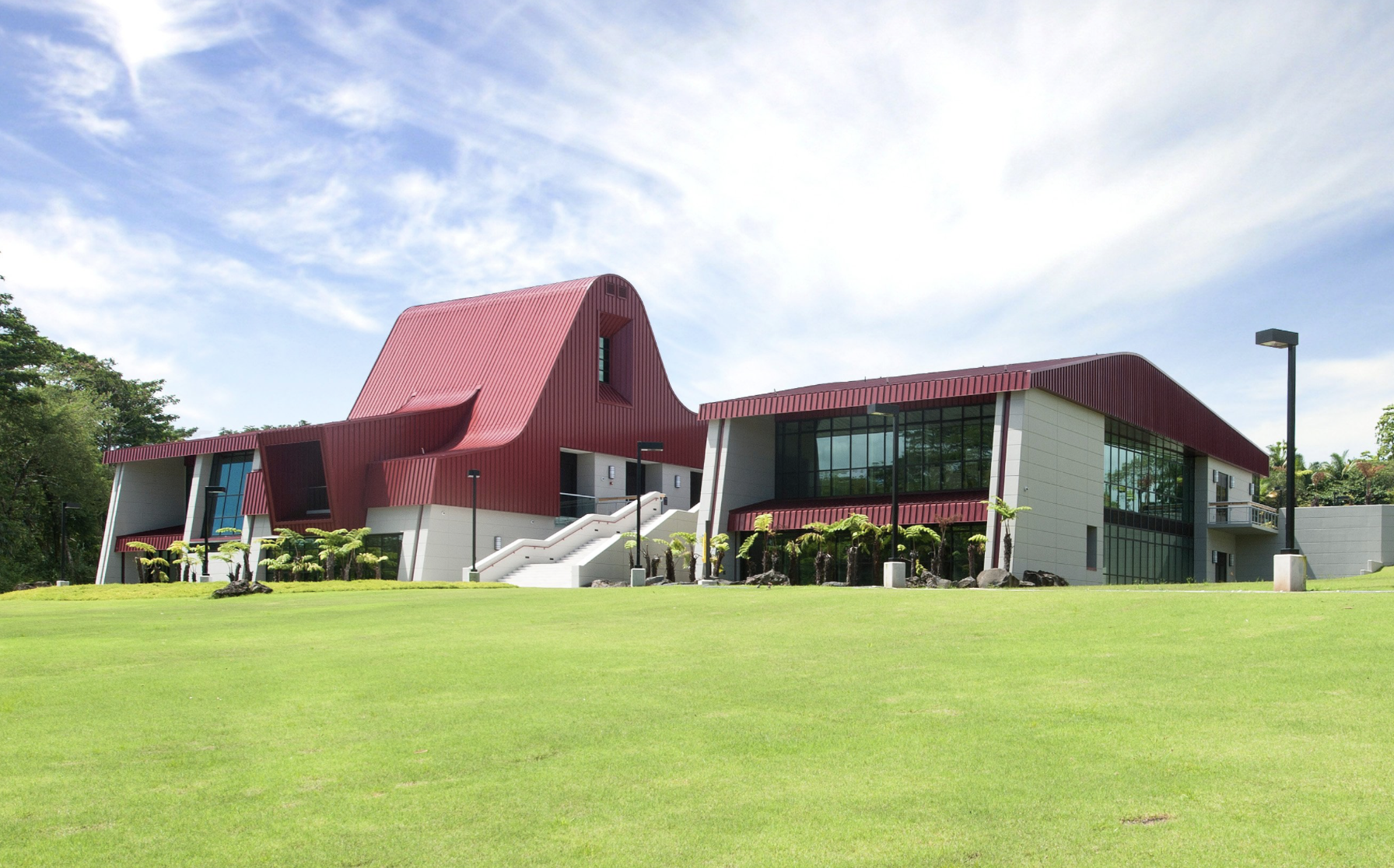The University of Hawaiʻi at Hilo will lead a three-university consortium that was awarded a $6.6 million, five-year grant from the U.S. Department of Education (USDE) to establish a National Native American Language Resource Center (N-NALRC). The award is the first of its kind to lead, advocate for and implement training and resource development for Indigenous language education pathways in the U.S.
“This is not only an acknowledgment of the value of our Native languages but is also a testament to the hard work our community has put into renormalizing our ʻōlelo Hawaiʻi (Hawaiian language) over the past 40 years, while also working to uplift other ʻōlelo ʻōiwi (Indigenous languages) nationally and internationally,” said Kaʻiu Kimura, director of the UH Hilo Hawaiʻi ʻImiloa Institute and UH Hilo’s Ka Haka ʻUla O Keʻelikōlani College of Hawaiian Language. “Our national team is honored to receive this grant, and we are grateful for the support of Senator Brian Schatz, who authored and shepherded the passage of the NALRC Act.”
“Culturally based instruction is critical to promoting and revitalizing Native languages,” said Schatz, who is also the chairman of the Senate Committee on Indian Affairs. “This funding will directly support educational institutions like the University of Hawaiʻi at Hilo in developing resources and fostering collaboration to promote the use of Native American languages across the country.”
UH Hilo is considered a worldwide leader in advancing Hawaiian and Indigenous language and culture revitalization.
“I am thrilled to see the years of effort by our Hawaiian language faculty getting national recognition in this way,” said UH Hilo Chancellor Bonnie D. Irwin. “The future work with our Indigenous partners through this center will enable us to further revitalize languages across the U.S.”
UH President David Lassner agreed, “This new grant recognizes the strength we have built within UH and provides an opportunity to share knowledge and solutions from Hawaiʻi with native communities seeking to save their languages throughout the country.”
Along with UH Hilo, the consortium includes the University of Alaska Southeast and Lac Courte Oreilles Ojibwe University in Wisconsin, programs that have long-standing ties with the ʻImiloa Institute and have been working relentlessly to reclaim their languages.
“With the opportunities presented in our shared visions and unity, we grow stronger together and keep one another from feeling alone in our efforts to achieve language stability,” said University of Alaska Southeast Professor Lance X’unei Twitchell, who earned his PhD at Ka Haka ʻUla O Keʻelikōlani.
Migizi Michael Sullivan, Native American studies director at Lac Courte Oreilles Ojibwe University, went on to say, “The center will be a place where Indigenous communities and groups can draw inspiration, information on best practices, and share strategies to renormalize the use of our languages, to benefit present and future generations of Indigenous people.”
About Hawaiʻi ʻImiloa Institute
The institute was established in 2023 as a collaborative effort between UH Hilo’s Hawaiian Language Consortium partners including ʻImiloa Center, Ka Haka ʻUla O Keʻelikōlani College of Hawaiian Language, Hale Kuamoʻo Hawaiian Language Resource Center, Mokuola Honua Center for Indigenous Language Excellence, Ke Kula ʻo Nāwahīokalaniʻōpuʻu, and the ʻAha Pūnana Leo. Building on 40 years of experience in revitalizing and renormalizing the Hawaiian language and supporting Indigenous languages around the world, the institute will further support the P–12, undergraduate and graduate programs, and community engagement throughout Hawaiʻi and other Indigenous communities and will serve as an incubator and accelerator to support native language normalization.
About the University of Alaska Southeast
Part of the University of Alaska system, the University of Alaska Southeast (UAS) has campuses in Juneau, Ketchikan and Sitka. The Alaska Native Languages and Studies program at UAS examines three primary components of modern and historical Alaska Native life: language, art and society. Taught by Alaska Native professors, Indigenous language study courses focus on revitalization through learning, documentation and community activities. Students within the Alaska Native Languages programs develop a strong foundation in language learning, use and advocacy. UAS has unique experience in teaching languages with especially intricate grammars and phonologies such as Tlingit, Haida and Tsimshian.
About Lac Courte Oreilles Ojibwe University
Lac Courte Oreilles Ojibwe University is located in the Lac Courte Oreilles Ojibwe reservation in Wisconsin and has extensive experience in working within a tribal college system and Bureau of Indian Education initiatives. The Lac Courte Oreilles reservation is also the site of the most developed Native American language immersion program outside of Hawaiʻi, the Waadookodaading Ojibwe Language Institute.


